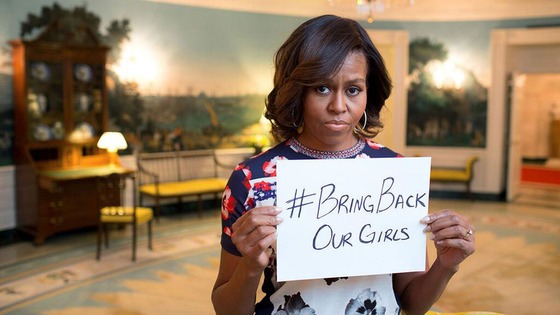Government Grants
Business Grants
Home Owner Programs
Federal Programs
About Us
Building Capacity of Nigerian Judicial Sector to Prosecute Terrorism and Atrocity Cases
Nigeria is ranked 8th most impacted country by terrorism globally according to the 2023 Global Terrorism index.
Groups like ISIS West Africa (ISIS-WA) and Boko Haram have committed horrendous atrocities like massacres and mass killings, use of sexual violence and enslavement, suicide bombings, abductions, and forced conscription.
These atrocities, especially in Nigeria’s northern region, have caused widespread fear among citizens, worsened a humanitarian crisis, and increased gross violations of human rights.
To hold the perpetrators of these atrocities accountable, Nigeria’s Federal Ministry of Justice has assigned the prosecution of terrorism and atrocities cases to the ministry’s Complex Case Group.
Furthermore, the Federal High Court of Nigeria, which has jurisdiction over terrorism cases, has assigned a number of judges to adjudicate these cases.
Nigeria’s Legal Aid Council (LACON) also provides defense to the persons charged with committing atrocities.
In addition to these, the National Human Rights Commission is tasked with the responsibility of promoting and protecting human rights and the investigation of human rights violations.
Thousands of terrorism cases in Nigeria remain backlogged.
The backlog results from prosecutors’ and judges’ limited knowledge of prosecuting atrocities cases.
Existing cases languish because of institutional administrative problems, including Nigerian judges transcribing court proceedings by hand, resulting in delays and errors.
Lawyers at the Legal Aid Council also have limited specialized training which contributes to delays in the process and lack of proper defense for suspects.
Detainees are kept in government detention facilities located at significant distances from the government officials responsible for the prosecution, defense and judgements, creating significant logistical challenges.
Poor case management, disorganized court administration, and a lack of coordination between the Complex Case Group, Federal High Court, and the Joint Investigative Center (the unit responsible for investigating terrorism cases comprised of military, police and state security service investigators) further impede progress on atrocity cases.
Groups like ISIS West Africa (ISIS-WA) and Boko Haram have committed horrendous atrocities like massacres and mass killings, use of sexual violence and enslavement, suicide bombings, abductions, and forced conscription.
These atrocities, especially in Nigeria’s northern region, have caused widespread fear among citizens, worsened a humanitarian crisis, and increased gross violations of human rights.
To hold the perpetrators of these atrocities accountable, Nigeria’s Federal Ministry of Justice has assigned the prosecution of terrorism and atrocities cases to the ministry’s Complex Case Group.
Furthermore, the Federal High Court of Nigeria, which has jurisdiction over terrorism cases, has assigned a number of judges to adjudicate these cases.
Nigeria’s Legal Aid Council (LACON) also provides defense to the persons charged with committing atrocities.
In addition to these, the National Human Rights Commission is tasked with the responsibility of promoting and protecting human rights and the investigation of human rights violations.
Thousands of terrorism cases in Nigeria remain backlogged.
The backlog results from prosecutors’ and judges’ limited knowledge of prosecuting atrocities cases.
Existing cases languish because of institutional administrative problems, including Nigerian judges transcribing court proceedings by hand, resulting in delays and errors.
Lawyers at the Legal Aid Council also have limited specialized training which contributes to delays in the process and lack of proper defense for suspects.
Detainees are kept in government detention facilities located at significant distances from the government officials responsible for the prosecution, defense and judgements, creating significant logistical challenges.
Poor case management, disorganized court administration, and a lack of coordination between the Complex Case Group, Federal High Court, and the Joint Investigative Center (the unit responsible for investigating terrorism cases comprised of military, police and state security service investigators) further impede progress on atrocity cases.
Agency: Department of State
Office: Bureau of International Narcotics-Law Enforcement
Estimated Funding: $1,000,000
Office: Bureau of International Narcotics-Law Enforcement
Estimated Funding: $1,000,000
Obtain Full Opportunity Text:
Link to Opportunity in MyGrants
Additional Information of Eligibility:
The following organizations are eligible to apply: • U.S.-based non-profit/non-governmental organizations (NGOs); • U.S.-based educational institutions subject to section 501(c)(3) of the U. S. tax code or section 26 US 115 of the US 115 of the U. S. tax code; • Foreign-based non-profits/non-governmental organizations (NGOs); Applicants must also meet the following requirements to be eligible to apply to this NOFO: • Demonstrated experience on multiple projects working with foreign government institutions in handling and prosecuting terrorism, atrocity, and war crimes cases.
.
Full Opportunity Web Address:
https://mygrants.servicenowservices.com/mygrants?id=mygrants_form&table=x_g_usd4_d_grant_funding_opportunity&sys_id=652584031b718210e02962cae54bcb7e&view=Default
Contact:
Agency Email Description:
Grantor Email
Agency Email:
Date Posted:
2024-05-03
Application Due Date:
Archive Date:
2024-07-28
Social Entrepreneurship
Spotlight
Vertical Farming: The Way to Feed a Global Population

Vertical farms are designed in a way to avoid the pressing issues about growing food crops in drought-and-disease-prone fields miles away from the population centers in which they will be consumed.

